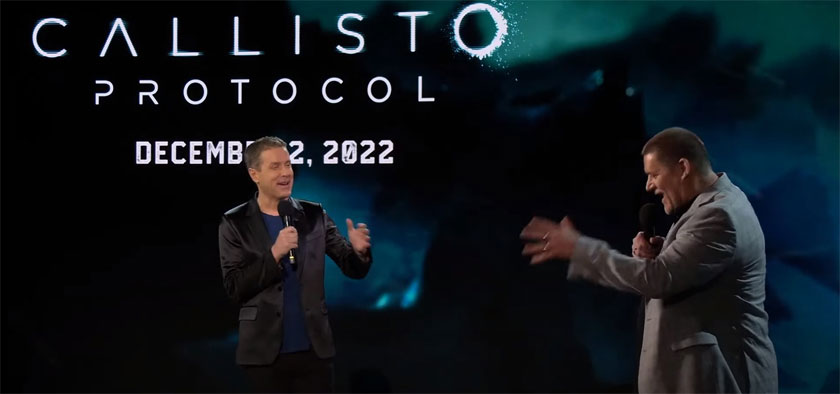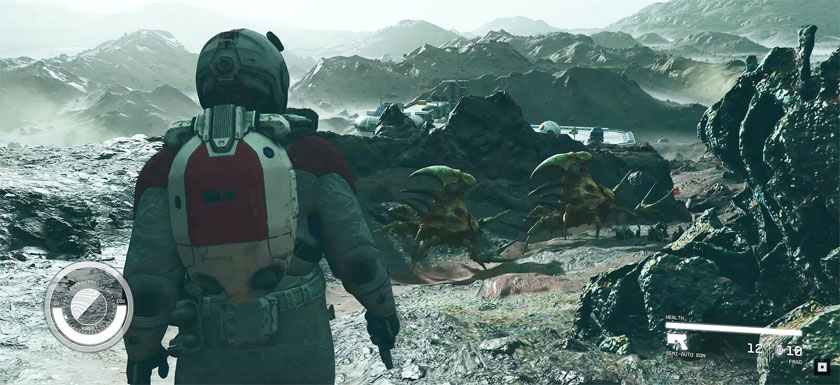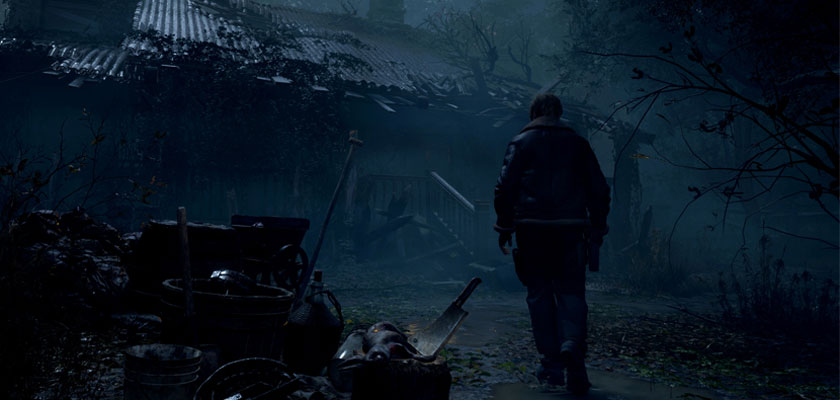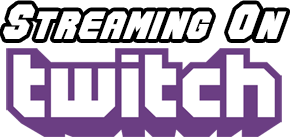Summer Game Fest 2022 Round-Up: Part One

It is the morning of Monday, June 6th, as I begin to cobble together these thoughts and drafts. There is a headline in which Geoff Keighly, host of Summer Games Fest and The Game Awards, warns viewers that the event will focus primarily on announced games. It is an understandable word of caution, with crazy and unfounded rumors flying left and right as eager consumers hope for some slew of colossal surprises.
This has generally been the state of things for several years now, and was something I had picked up on in Sony’s State of Play. Aside from the opening trailer for a Resident Evil 4 remake – long-rumored but never officially addressed by Capcom – every game showcased was a known quantity. This isn’t necessarily a bad thing, as last year’s Elden Ring reveal was for a previously announced title and yet managed to be the talk of the summer. Sometimes, the best source of marketing available is to answer a question, and for many games this year, that question is simply “what will it be like?”
It is now Monday, June 13th, a week after having written the above two paragraphs. I have deleted a page and a half of text I had written a week ago, abandoned after having been inspired to declare E3 dead. The majority of the Game Fest has concluded. Unlike last year, I’ve missed approximately half of the shows. I have not seen the Guerilla Collective showcase nor have I consciously seen anything aside from the PalWorld trailer from the Future Games Showcase. Capcom’s stream begins in less than two hours, Microsoft has an extension planned for tomorrow, Ubisoft has just scheduled a live stream focused on the Assassin’s Creed franchise, Square Enix and Blizzard aim to have streams focused on Final Fantasy VII and Overwatch 2 on Thursday, respectively, and Focus Entertainment has also just announced today that A Plague Tale: Requiem won’t be getting a release date until their own stream on June 23rd.
E3 is most certainly dead, and Summer Games Fest is no festival of games.

I do not mean to be melodramatic, nor do I mean to say things are now worse than they were before. It is all a matter of perspective, first and foremost. There were certainly detriments to the old methods of E3, and ultimately there are far better things to do with one’s time than celebrate commercial excess of luxury items. Simultaneously, my rose-tinted glasses are most certainly forgetting the volumes of snark and sarcasm that dripped from my lips and the mouths of many others. I may miss the old E3 now, but I certainly did not appreciate what I had of it.
When I wrote about E3 in 2021, I observed that the event had become the first of many trade shows spread across the summer, and therefore a part of a multi-phase marketing strategy for every game and publisher throughout the industry. Geoff Keighley is simply trying to put a label onto the entire season, but no festival lasts for several weeks, let alone months. Part of the joy is how densely packed together all of that excitement and hype is. Stretching it out simply means the best announcements and information are spread further apart. The intense blitz of media is no longer a constant, in-your-face slew of trailers and announcements, but the occasional news break in the middle of your work day.
As I stated last week, this makes the most sense for the larger publishers and platform holders. They get to dominate more of the conversation rather than being forced to compete and be compared. This is fine, but those of us old enough to remember those old days – even if we forget how many jibes and jabs we gave to the tie-wearing suits scanning the teleprompters up on stage – will always feel empty in comparison to how it used to be. It’s a shame to have lost that.
With that out of the way, let’s get to some of my thoughts on corporate strategies and what games I’m looking forward to.

Microsoft & Sony
I was surprised to see PlayStation fans mocking Microsoft for many of their game announcements being available on their chosen console platform as well. Part of it is because I’m shocked to see the console wars taking the exact same shape they had twenty years ago. There are reasons I have chosen a bias towards Microsoft this generation, but I do so in part because I want Sony to suffer the burden of competition so that they might improve their strategy and services. I do not perceive any boon to Microsoft as a “victory”.
It was more surprising, however, because it seems to completely miss the point. Microsoft is not flaunting exclusivity, they are celebrating the presence of these games on their Game Pass service. A few days before their showcase Microsoft announced that Samsung Smart TVs would start shipping with the Xbox App, allowing customers to stream games straight to their TV. If you have a subscription to Game Pass, then you can play games on your TV without an Xbox or PC… and, by extension, without a PlayStation or Nintendo Switch.
Will this be a successful move? I don’t know, though word is that Microsoft’s Cloud Gaming is far better than their competitors in regards to quality and latency. Nonetheless, this further confirms that Microsoft is more interested in subscribers to their service on any platform possible rather than exclusively tying them to the Xbox console ecosystem.

To that end, one must wonder if Sony’s strategy will be successful in the long-term. On the surface, their revamped PS+ is incredibly competitive to Game Pass. Many of the recent generation games overlap, but there are also plenty of third parties that either left Game Pass or were never on there. The list of PS3 titles is even more impressive, but restricted to Cloud streaming. Nevertheless, combined with Sony’s own legacy first parties and classic titles stretching back towards the original PlayStation, one could argue that the new PS+ is offering a far better selection than what Microsoft has.
However, there’s a question of recency, and it is clear that Microsoft is looking to future releases while Sony leverages its own past. We already know that Sony has no interest in releasing their first party titles on their revised PS+ service in order to “preserve” their “virtuous cycle”, whatever that means. We also know that new games on the PlayStation 5 are going to increasingly sell for $70, which is becoming a larger ask as the economy causes the basic necessities to hit the wallet harder. If Microsoft succeeds in offering more and more recent titles on day one while Sony can only offer back-catalog titles, then Microsoft could have an edge.
Note that I only say could, because only time will tell. Additionally, Sony’s library may be impressive, but it is also only available on the PlayStation 4 and 5 ecosystem. Xbox Game Pass is, as already iterated, available not just on Xbox platforms, but PC, phones, and now, televisions. Sony is clearly beginning to release more of their first-party titles on PC, but will PS+ be available on as many devices and platforms as Xbox Game Pass?

One must also wonder if Sony is somehow ashamed of their legacy catalog. Yes, they are certainly willing to use their old titles to coax players into subscribing to their service, but it’s almost as if PlayStation’s first parties before The Last of Us are irrelevant to the company’s future path. Many frustrated players have already voiced all the PS3 or earlier franchises that could use a modernized remake or port more than The Last of Us, and the idea of having to pay $70 for a game that can already be enjoyed with a suitable, good-looking remaster on PS4 and PS5 is… well, I won’t say it’s greedy, but it’s certainly exploitative.
If Microsoft is doing anything well with their first-party efforts, it is the sense of variety in games being provided. Unfortunately, there is hardly anything to see or be said of whether these first-parties even exist, as not a single one seems destined to release this year. Hellblade: Senua’s Saga was nowhere to be seen during this recent showcase, nor was the rumored Avowed by Obsidian Entertainment. Bethesda’s new big game Starfield finally revealed its gameplay, but had to be delayed into 2023. While Microsoft’s Forza Horizon and upcoming Forza Motorsport present an excellent alternative to Sony’s microtransaction infested Gran Turismo 7, Halo Infinite remains an incomplete mess compared to Demon’s Souls, Returnal, and Ratchet & Clank: A Rift Apart. If Sony ships God of War: Ragnarok in 2022, then one must wonder if Game Pass will be enough to convince players to opt for Microsoft, be it on Windows or Xbox.
In this day and age, a third-party console exclusive will eventually make its way to other platforms. First-parties, however, are something that can be leveraged, and Microsoft needs a library worth leveraging. After all, that’s part of the reason PS+ is so appealing, and that’s why Nintendo can continue to sell gangbusters despite having weaker, more restricted hardware.

CAPCOM
Before I jumped into individual game releases, I wanted to take a moment to discuss Capcom now that their showcase has come and gone (Note: obviously this portion was written after the 13th, when I had finished drafting the opening paragraphs). Every year there are players demanding sequels to all of their favorite and forgotten franchises. However, I think it is important to keep in mind that Capcom is far more selective in projects these days, and also incapable of developing the sheer volume they once could.
I do not believe Capcom has anything major slated for 2022 outside of Monster Hunter: Sunbreak and, now, the Resident Evil Village expansion content. No doubt they will be focusing their hype machine on those two releases rather than any singular new title. Yes, they have smaller releases such as Capcom Arcade 2nd Stadium and Capcom Fighting Collection, but their next slew of major releases are all slated for 2023. Exoprimal, Pragmata, Street Fighter VI, Resident Evil 4, each of these will be shipping in 2023, and it is possible that those are the only major releases we’ll see next year.
Which, admittedly, is a good year for a developer. Games are expensive and take several years to develop, and as of late, Capcom has shown that they are willing to take the time to make their games really good. Resident Evil 3 is the closest to a major failure, and despite being a disappointment it’s not a bad game. This does not guarantee all future endeavors will also be good (and, if anything, causes concern they’ll become complacent), but I have confidence in Capcom’s decision to spend more time developing fewer projects to ensure better overall quality.

That said, both the Monster Hunter and Resident Evil franchises are by far Capcom’s biggest earners. As such, the only titles we can be sure of Capcom working on are a new entry to each series at any time. I have no doubt that they have a team working on a follow-up to Monster Hunter World, and it should be obvious that Resident Evil IX is in early stages of production. This means there are only so many other teams that can be working on new games and content.
So, don’t go expecting announcements of a Devil May Cry 6, a new Breath of Fire, another Mega Man, or – much to my dismay – Dragon’s Dogma 2. I would love it if any of these were to exist, but Capcom only has so many resources and none of these continue to be successful franchises like Monster Hunter and Resident Evil.
As for which games I’m looking forward to, well, pretty much everything Capcom is working on right now gets my interest. I will be purchasing the expansions for Monster Hunter Rise and Resident Evil: Village, I have put in my ticket for the Exoprimal closed network test, and eagerly await to hear more of Street Fighter VI and Pragmata. I may have misgivings towards the Resident Evil 4 remake, but there’s no way I will miss out on it.
I’ll write about all the other titles that caught my eye this Games Fest next time.


